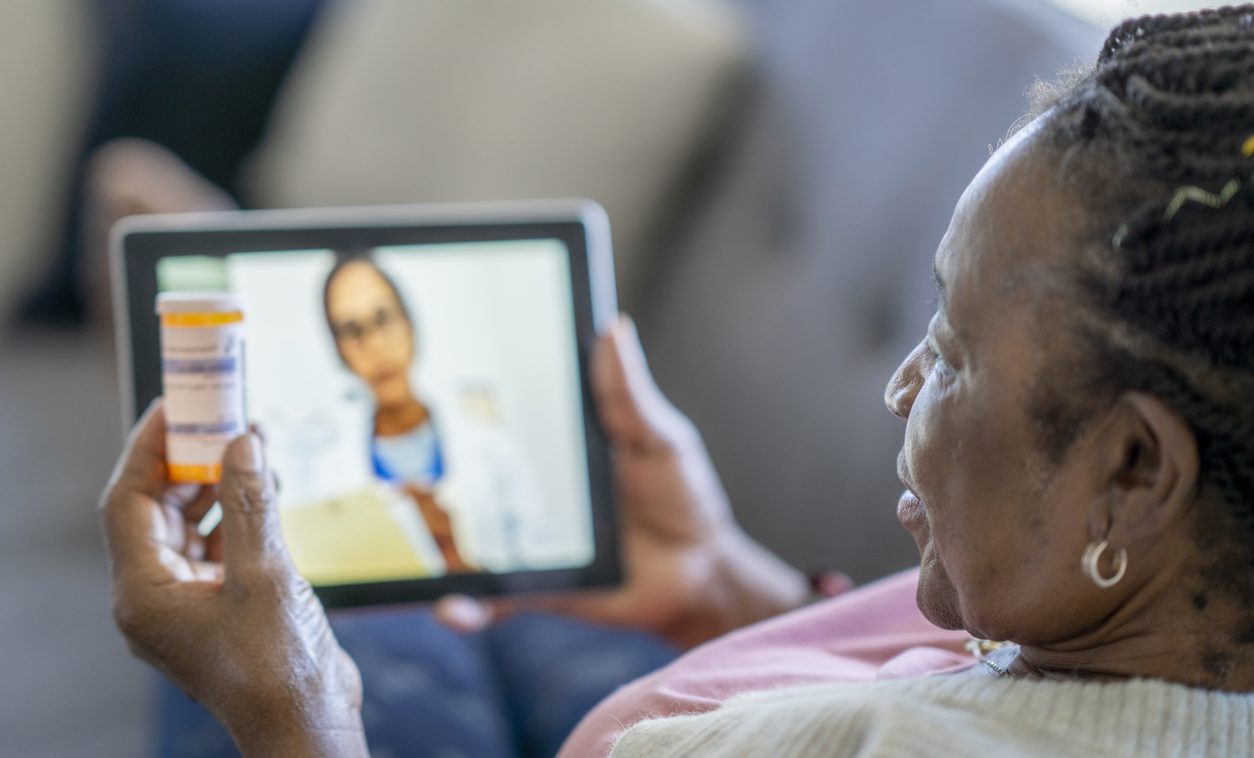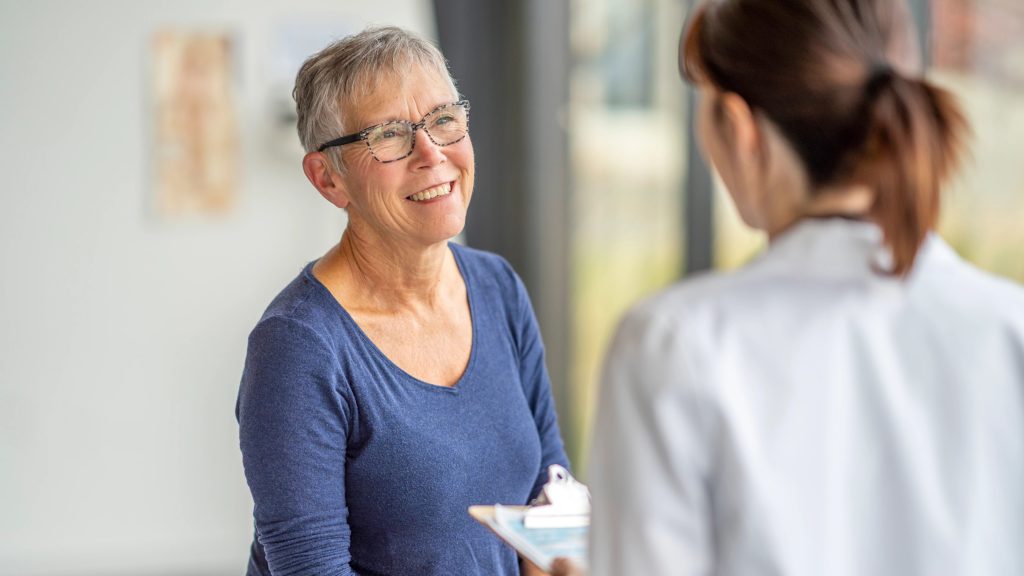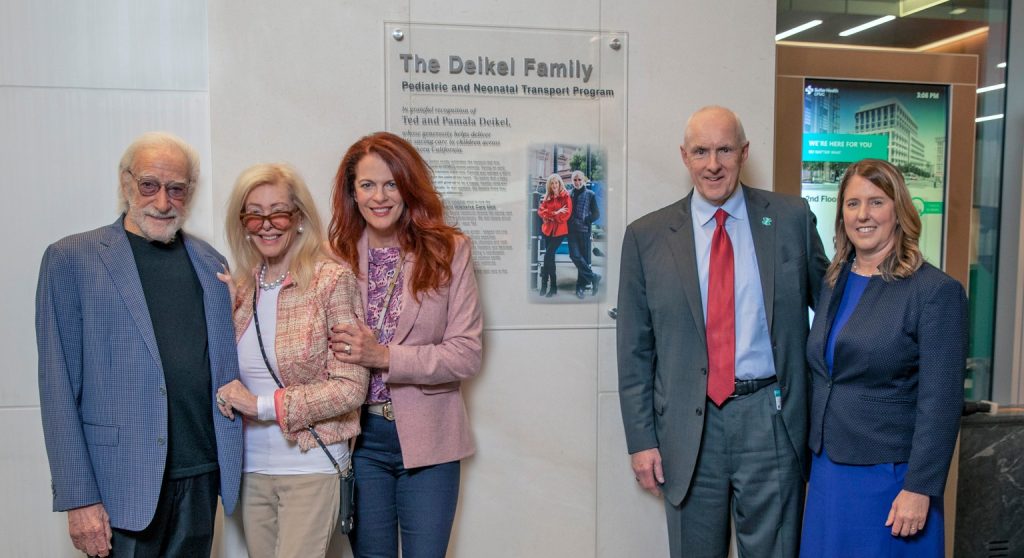By Meg Walker
Through video visits, endocrinologists are learning more about a patient’s lifestyle, diet – even loneliness
Doctors are discovering that video visits can actually enhance care for patients with chronic conditions, particularly those with diabetes.
In the wake of the COVID-19 pandemic last spring, some health systems began offering video visits on a large scale. As might be expected, video visits increase convenience for both the doctor and the patients who can speak to a clinician from home. But also important – video visits can add value by giving the physicians more insight about their patient’s medication management, eating habits and lifestyle – all important in controlling diabetes.
“Usually these patients need frequent visits for ongoing care, and having video visits has been really helpful for the education that we do, and to make that ongoing care possible,” said Farnoosh Farrokhi, M.D., an endocrinologist with Sutter East Bay Medical Foundation (SEBMF) in Castro Valley.
Technology is important to help patients with diabetes manage their condition. Patients often use electronic devices to help monitor their sugar levels or deliver insulin. By using software, patients can upload their device information without needing to come to the office, and the doctor can view it online before seeing the patients via video.
Through a video visit, the physician can examine the patient visually, discuss treatment and counsel patients on the best path forward.
“In some ways, depending on the patient, I have found video visits more helpful,” Dr. Farrokhi said. “For example, you can review a patient’s medication better. Sometimes when patients come to the clinic they don’t have their medication with them and they don’t know what medications they take or the dose, but when they are at home they can just grab the bottle and show it to you.”
Video visits can increase access for patients and that has been very helpful, physicians say.
Marcia Peck, M.D., another SEBMF endocrinologist based in Castro Valley, said patients are less likely to cancel their virtual visits because they do not have to leave their house, or make a long commute. That is important especially for patients who live far away or have limited mobility.
“I am able to maintain more continuity with my patients,” Dr. Peck said. “There is more flexibility; if they can’t make the appointment, I will call them and set up a better time.”
Patients report appreciating the convenience as well. “I like being able to have a conversation over the video visit” with my doctor, said Castro Valley resident Boris Pecheny. “I like not having to go into the office.”
Pecheny wears a device that allows him to download information about his blood sugar to Dr. Peck.
After she reviews the information Pecheny said Dr. Peck “gives me advice on diet or my medication regime. That’s very important to me. The benefit is having a conversation regularly with my endocrinologist, and she can change the course of treatment, if that is necessary.”
Dr. Peck especially values the insight she can get into her patient’s lifestyle through a video visit.
“I am talking to them at home and I can see their home, and they can show me the specific foods they are eating,” Peck explained. “Do they have a pill box? How are their pills organized? I’m getting a better sense of any barriers they may have to taking their medications.’’
She also often has a chance to speak with other family members, and they can discuss such things as the best diet for a parent or relative or how often to check their blood sugar or the timing of certain medications. She has discovered things about the patient’s diet that need to be changed – like eating cookies or bread that are high in carbohydrates, which can impact a person’s blood sugar level.
“I can suggest an alternative,” Dr. Peck said. “I counsel other family members on how they can help, and they feel more engaged.”
And during this pandemic, virtual visits are even proving to be a good tool for making a long term connection and reducing anxiety and loneliness.
“People are feeling isolated and that’s been challenging,” Dr. Peck said. “With telehealth I can have frequent contact with them, and that has been helpful for patients. I’ve gotten the feedback that you are an important person in their life, somebody they can rely on.”
Read on for more information on scheduling a video visit.





